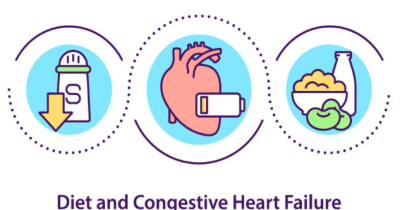Understanding Congestive Heart Failure: Causes, Symptoms, and Treatment
Congestive Heart Failure (CHF) is a long-term condition that affects millions of people worldwide. It happens when the heart struggles to pump blood effectively, leading to fluid buildup in the lungs, legs, and other parts of the body. While the name may sound scary, understanding CHF, its symptoms, and treatment options can help individuals manage the condition and lead healthier lives.
What is Congestive Heart Failure?
Congestive heart failure occurs when the heart isn’t able to circulate blood efficiently. This can lead to fatigue, breathing difficulties, and swelling in different parts of the body. CHF can affect either side of the heart, or sometimes both, and comes in different forms based on how the heart’s function is impaired.
Types of Congestive Heart Failure
- Left-sided heart failure: The most common type, where fluid backs up in the lungs, causing breathing difficulties.
- Right-sided heart failure: Causes fluid retention in the lower body, including the legs and abdomen.
- Diastolic heart failure: The heart muscle becomes stiff and has trouble filling with enough blood.
- Systolic heart failure: The heart muscle weakens, reducing its ability to pump blood properly.
What Causes Congestive Heart Failure?
CHF doesn’t happen overnight. It usually develops over time due to other health conditions that strain the heart. Common causes include:
- Coronary artery disease (CAD): Narrowed arteries limit blood supply to the heart.
- High blood pressure (hypertension): Forces the heart to work harder, weakening it over time.
- Diabetes: High blood sugar levels can damage blood vessels and the heart.
- Heart attack: Previous heart damage can lead to heart failure.
- Cardiomyopathy: Diseases that affect heart muscle function.
- Valvular heart disease: Damaged heart valves make it harder for blood to flow properly.
- Chronic kidney disease: Fluid retention and increased blood pressure add strain on the heart.
Recognizing the Symptoms of Congestive Heart Failure
Early detection of CHF can lead to better management and improved quality of life. Common symptoms include:
- Shortness of breath (especially during physical activity or lying down)
- Fatigue and weakness
- Swelling in the legs, ankles, and feet
- Rapid or irregular heartbeat
- Persistent cough or wheezing, sometimes with mucus
- Unexplained weight gain due to fluid retention
- Difficulty concentrating or confusion
How is Congestive Heart Failure Diagnosed?
Diagnosing CHF involves a combination of physical exams and medical tests, including:
- Physical examination: Checking for swelling and abnormal heart sounds.
- Echocardiogram: An ultrasound that evaluates heart function.
- Electrocardiogram (ECG): Detects irregular heart rhythms.
- Chest X-ray: Looks for fluid buildup and heart enlargement.
- Blood tests: Measures levels of substances that indicate heart stress.
- Cardiac MRI or CT scan: Provides detailed heart imaging.
Managing and Treating Congestive Heart Failure
While CHF cannot be completely cured, it can be managed effectively with lifestyle changes, medications, and medical procedures.
Lifestyle Changes for CHF Management
- Heart-healthy diet: Focus on fruits, vegetables, and whole grains while reducing salt and processed foods.
- Regular exercise: Stay active within your physical limits.
- Managing stress: Meditation, deep breathing, and relaxation techniques can help.
- Quitting smoking and limiting alcohol: Both can worsen heart failure symptoms.
Medications for Congestive Heart Failure
Doctors may prescribe medications to manage symptoms and improve heart function, including:
- ACE inhibitors and ARBs: Help relax blood vessels and reduce heart strain.
- Beta-blockers: Lower heart rate and blood pressure.
- Diuretics: Reduce excess fluid and swelling.
- Aldosterone antagonists: Help regulate sodium and water balance.
- Digitalis (digoxin): Strengthens heart contractions in some cases.
Advanced Treatments and Procedures
- Implantable cardioverter-defibrillator (ICD): Prevents dangerous heart rhythms.
- Pacemakers: Help regulate heartbeats.
- Heart valve surgery: Repairs or replaces damaged heart valves.
- Coronary bypass surgery: Improves blood flow to the heart.
- Left Ventricular Assist Device (LVAD): A mechanical pump that supports heart function.
- Heart transplant: Considered in severe cases when other treatments fail.
How to Prevent Congestive Heart Failure
Although some causes of CHF are unavoidable, certain lifestyle choices can reduce the risk:
- Regular check-ups to monitor heart health.
- Managing blood pressure, cholesterol, and diabetes.
- Maintaining a healthy weight.
- Avoiding excessive alcohol and tobacco use.
Congestive heart failure is a serious condition, but with early diagnosis, treatment, and lifestyle changes, people can lead fulfilling lives. If you notice symptoms of CHF, consult a doctor as soon as possible. Taking proactive steps today can help prevent complications and improve overall heart health.
Discover more about health here . Click Me

